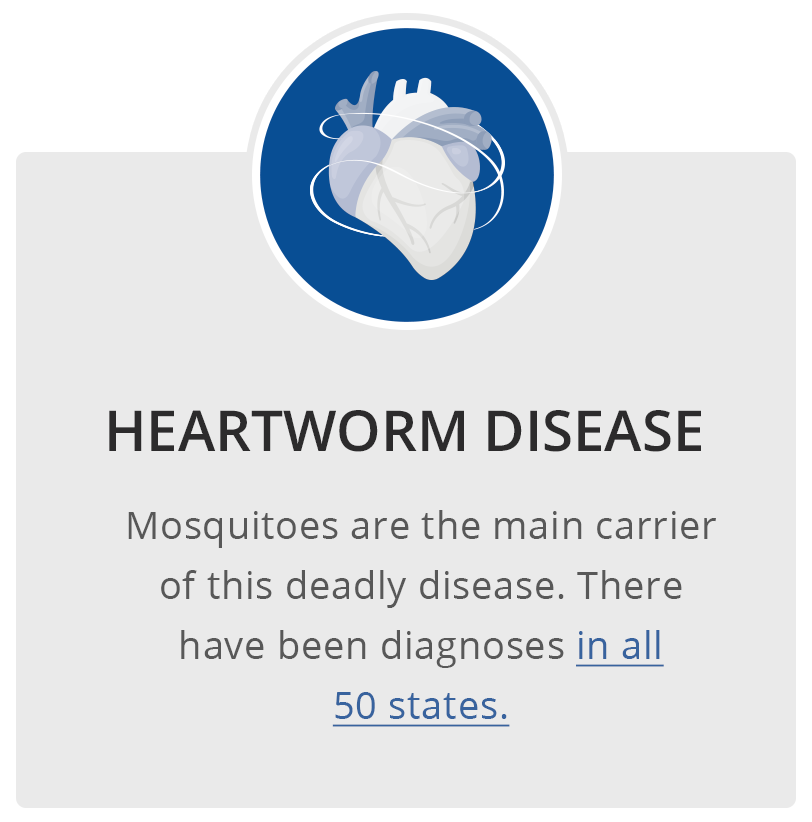HEARTWORM DISEASE
About Heartworm Disease
WHERE IS IT?
Heartworm disease is a serious and potentially fatal disease caused by foot-long worms that live in and cause severe damage to the pet’s heart, lungs, vascular system and other internal organs.
HOW DOES IT SPREAD?
Mosquitoes are the main carrier of heartworm disease. They take a blood meal from an infected animal, then bite another animal, spreading the infection through the blood. It can take up to 6-9 months for these larvae to mature into adult heartworms.
JUST A MOSQUITO BITE AWAY FROM INFECTION
- A mosquito is the only carrier of heartworm disease to both dogs and cats
- It takes about 7 months after a dog is bitten by an infected mosquito for the larvae to mature into adult heartworms1
- A heartworm’s life span inside a dog can be anywhere from 5 to 7 years2
- Heartworm disease is foot-long worms that live in and cause severe damage to the pet’s heart, lungs, vascular system and other internal organs
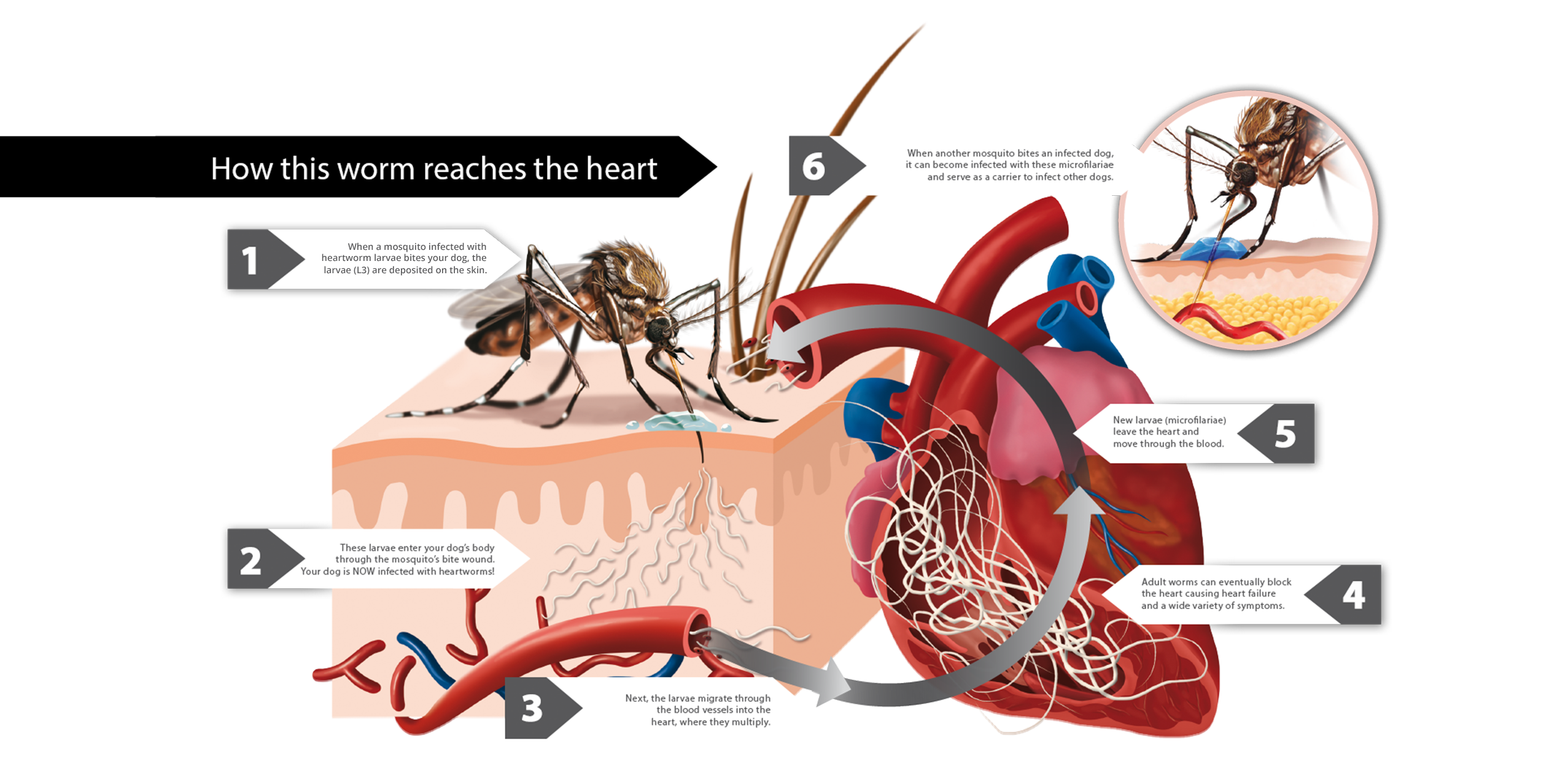
How to Protect Your Pets
LOOK FOR SIGNS & SYMPTOMS
In Dogs
- Mild persistent cough
- Reluctance to move or exercise
- Fatigue after moderate exercise
- Enlarged liver
- Reduced appetite and/or weight loss
- Death
In Cats
- Vomiting
- Gagging
- Difficult or rapid breathing
- Swollen Belly
- Reduced appetite and/or weight loss
- Death
You may see any combination of the signs above. However, many infected animals show no signs!
TALK WITH YOUR VETERINARIAN
If you see any of the signs or symptoms above, talk to your veterinarian about MilbeGuard®. It’s important to schedule yearly visits with your veterinarian so they can perform blood and fecal tests.
Prevalence and the Growing Severity
IS YOUR PET SAFE?
Cold climates, warm climates, coast-to-coast – no pet is safe. HEARTWORM DISEASE HAS BEEN DIAGNOSED IN ALL 50 STATES and continues to grow.
In fact, canine heartworm infections in the US have INCREASED 21.7%3 per clinic from 2013 to 2016. And approximately 2 OUT OF 3 DOGS receive NO HEARTWORM PREVENTION each year4.
WE CAN’T AFFORD THIS.
2016 HEARTWORM INCIDENCE*
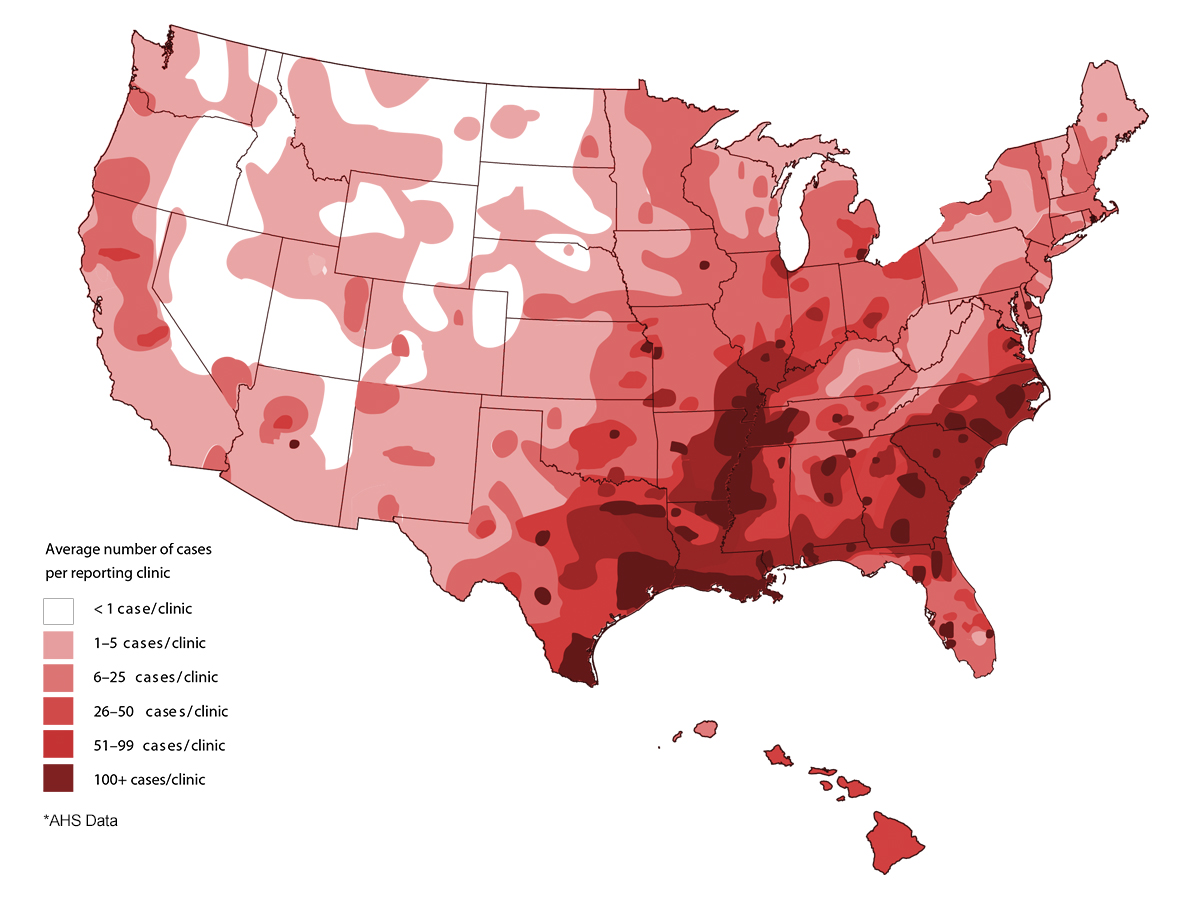
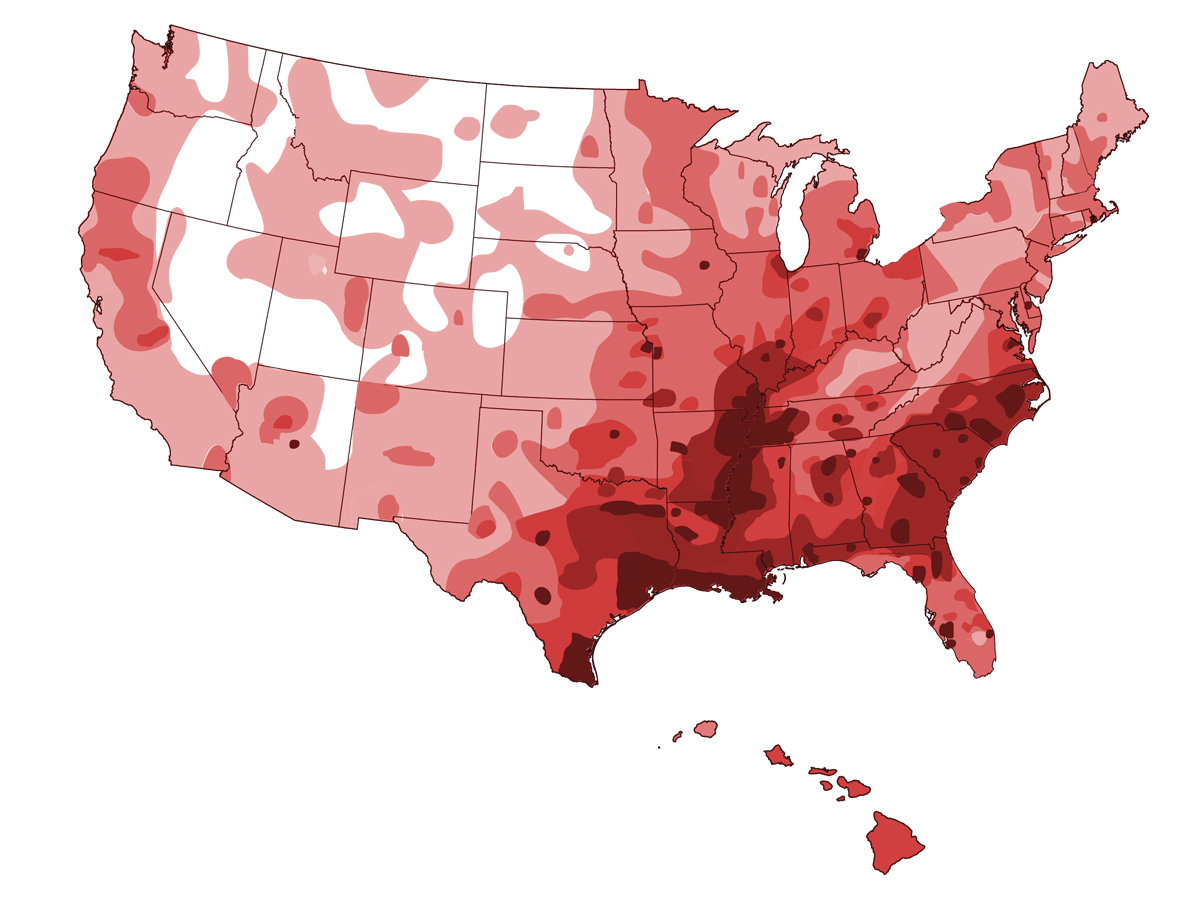
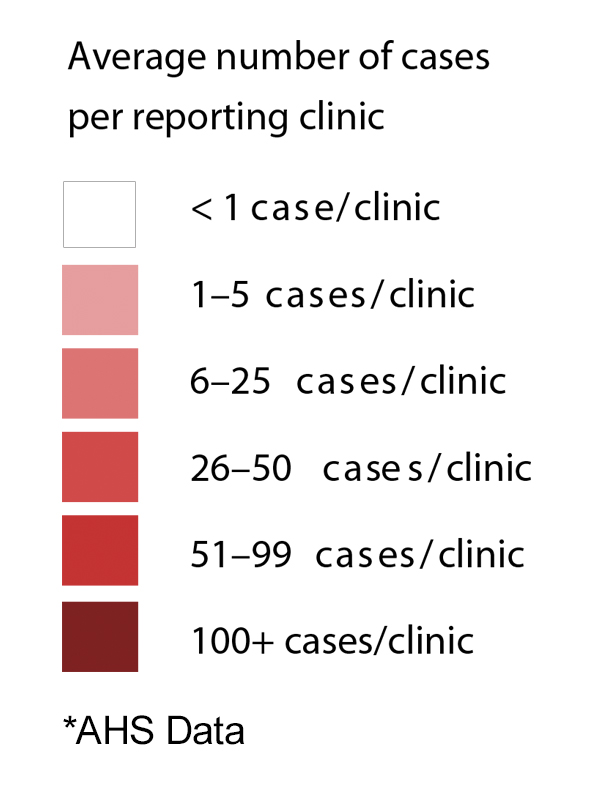
Prevention > Treatment
WHILE HEARTWORM DISEASE IS FATAL IN BOTH DOGS AND CATS, TREATMENTS FOR CATS DOES NOT EXIST
There is a serious risk of fatal complications throughout the treatment protocol for dogs, including emboli, blood flow, heart failure and/or severe immune reactions to dead and dying worms.
DID YOU KNOW?

As soon as diagnosis is confirmed, your dog’s normal physical activity must be restricted. Physical exertion speeds up the damage worms can do to the heart and lungs, and can even cause complications leading to death5.
Once your dog is ready for treatment, your veterinarian will recommend an extensive protocol that involves several steps5.

Your dog will likely need to be fully confined to limit and control their activity for 5-6 months during the stabilization treatment and post-treatment recovery period.



Your dog will likely need to be fully confined to limit and control their activity for 5-6 months during the stabilization treatment and post-treatment recovery period.

Aside from the time, energy and emotional support your dog will need from you when diagnosed, below are a few costs typically associated with treatment:
- Diagnostic tests to help assess risk of complications
- – Radiographs
- – Blood work
- Stabilization Therapies
- – Steroids
- – Diuretics
- – Fluid Therapy
- – Heart Medications
- Antibiotics
- Macrocyclic Lactones
- Treatment for any Complications
- Emergency Surgery
- Boarded Cage Rest to Restrict Exercise
The smartest way to Protect is to Prevent.
DON’T RISK THE HEALTH OF THE DOG OR CAT YOU LOVE.
Talk to your veterinarian about the importance of heartworm prevention.
- Eckstein, S. (n.d.). Heartworms in Dogs: Facts and Myths. Retrieved from https://pets.webmd.com/dogs/guide/heartworms-in-dogs-facts-and-myths
- Center for Veterinary Medicine. (n.d.). Animal Health Literacy – Keep the Worms Out of Your Pet’s Heart! The Facts about Heartworm Disease. Retrieved from https://www.fda.gov/animalveterinary/resourcesforyou/animalhealthliteracy/ucm188470.htm
- American Heartworm Society – AHS Announces Finding of New Heartworm Incidence Survey.https://heartwormsociety.org/newsroom/in-the-news/347-ahs-announces-findings-of-new-heartworm-incidence-survey. Accessed 26 July 2017.
- Drake and Wiseman Parasites & Vectors (2018) 11:39. https://parasitesandvectors.biomedcentral.com/articles/10.1186/s13071-018-2631-0
- Heartworm Basics – American Heartworm Society. (n.d.).
Retrieved from https://www.heartwormsociety.org/pet-owner-resources/heartworm-basics

